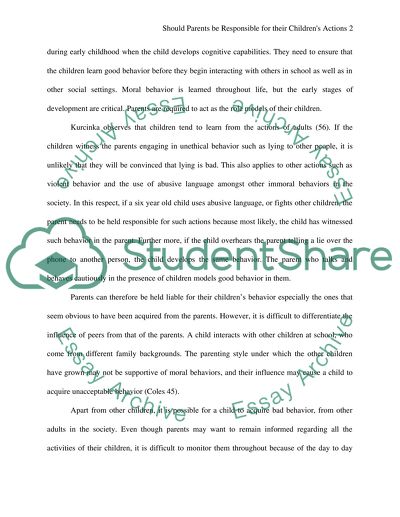Cite this document
(“ENG 1 (should parents be responsible for their children's actions) Research Paper”, n.d.)
ENG 1 (should parents be responsible for their children's actions) Research Paper. Retrieved from https://studentshare.org/miscellaneous/1560641-eng-1-should-parents-be-responsible-for-their-childrens-actions
ENG 1 (should parents be responsible for their children's actions) Research Paper. Retrieved from https://studentshare.org/miscellaneous/1560641-eng-1-should-parents-be-responsible-for-their-childrens-actions
(ENG 1 (should Parents Be Responsible for Their children'S Actions) Research Paper)
ENG 1 (should Parents Be Responsible for Their children'S Actions) Research Paper. https://studentshare.org/miscellaneous/1560641-eng-1-should-parents-be-responsible-for-their-childrens-actions.
ENG 1 (should Parents Be Responsible for Their children'S Actions) Research Paper. https://studentshare.org/miscellaneous/1560641-eng-1-should-parents-be-responsible-for-their-childrens-actions.
“ENG 1 (should Parents Be Responsible for Their children'S Actions) Research Paper”, n.d. https://studentshare.org/miscellaneous/1560641-eng-1-should-parents-be-responsible-for-their-childrens-actions.


